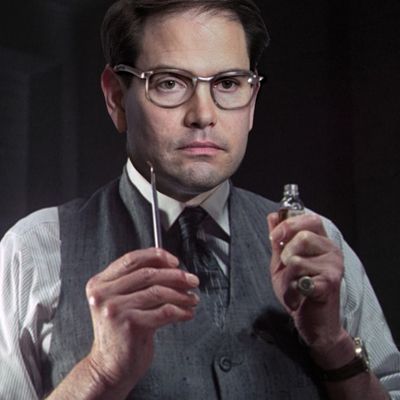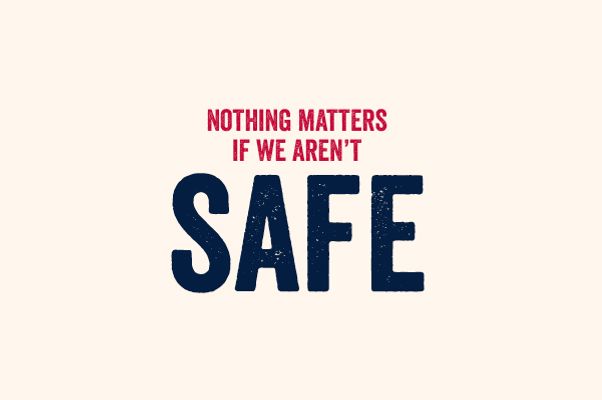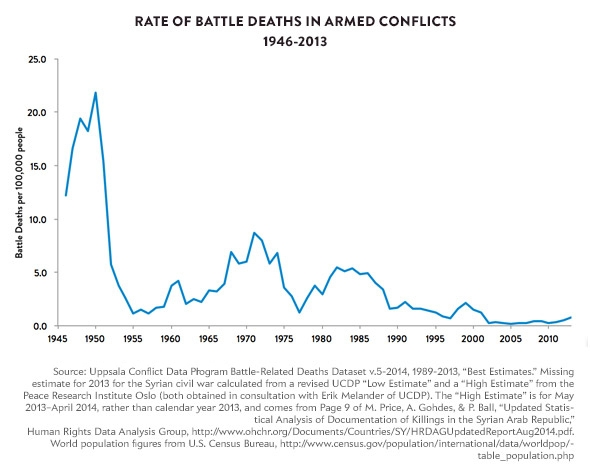
The interesting thing about Marco Rubio’s emerging foreign-policy profile is not his commitment to mindlessly bellicose neoconservatism. (This remains Republican doctrine, and Rubio has a keen eye for locating the most popular stance within his party.) Rather, the interesting thing is that Rubio sees no need to hide his bellicosity behind feigned sophistication. He is a loud and proud neanderthal, appealing to the most primitive, fearful elements of the conservative brain, or brain-stem.
In his recent foreign-policy speech, he attached his foreign-policy doctrine to a comically over-the-top action movie: “On our strategy on global jihadists and terrorists, I refer them to the movie Taken. Have you seen the movie Taken? Liam Neeson, he had a line, and this is what our strategy should be: ‘We will look for you, we will find you, and we will kill you.’” Even that message now appears too subtle, and Rubio today announces his new theme:

“The world has never been more dangerous than it is today,” argues Rubio. He is possibly preparing a campaign theme that can work in a favorable economy. All the things Republicans claimed would happen as a result of Obama’s economic policies — Obamacare collapsing, workers shunted into part-time jobs, taxes and regulations strangling growth — have failed to materialize, but there are still scary people at large in the world.
To be sure, Rubio’s claim that the world “has never been more dangerous than it is today” is not just wrong but insanely wrong. How about when a massive communist empire threatened us with nuclear annihilation? Or when Nazi Germany and Imperial Japan launched a war of extermination? Or when the Mongols amassed the largest land conquest in human history and left behind smoking ruins and pyramids of skulls?
As Stephen Pinker has argued, the world has in fact grown comprehensively safer in nearly every respect. This is true whether safety is defined in humanitarian or geopolitical terms. Disease and starvation, the main killers of humanity, are in retreat. Far more people live in democratic states, and fewer in autocratic ones. Armed conflict has declined precipitously:

Of course, most Americans, who are quite safe, have little awareness of aggregate measures of safety. There are still frightening figures committing barbaric acts on their television screens, in Iraq and elsewhere. Rubio’s argument — to the extent he has any analytic basis for his platform, which is questionable — is that Americans must regard these threats with a terror so comprehensive it blots out all other considerations. You may not be thrilled with a candidate who promises to repeal the security of Obamacare and eliminate all taxes on amassed wealth, but you have no choice, because “nothing matters.” He is the candidate who will ask over and over again, “Is it safe?”
Rubio has replaced the Liam Neeson doctrine with the Laurence Olivier doctrine.






























